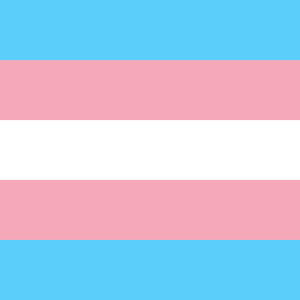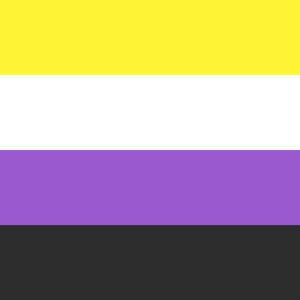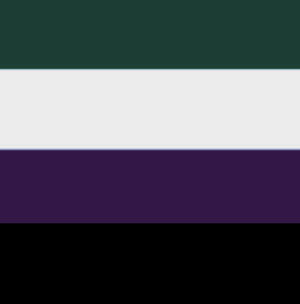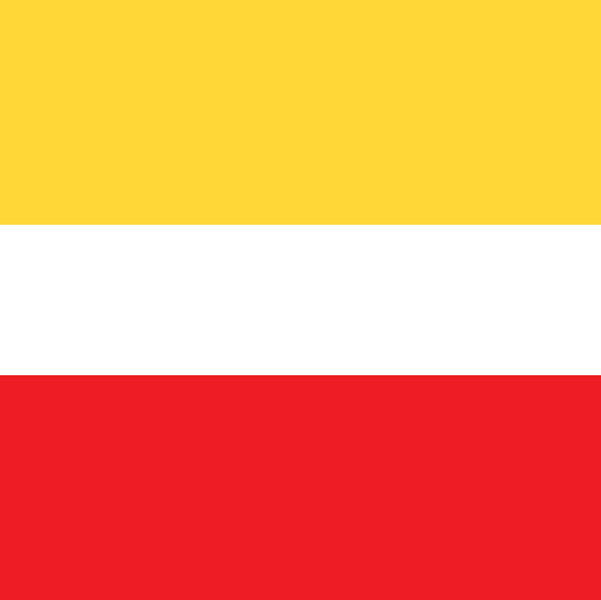let's talk about:
neopronouns & nounself pronouns
What's a neopronoun? Why is everything a pronoun now? Are neopronouns only for neurodivergent people? Isn't MOGAI bad??
A Carrd with sources
definitions

Transgender

Nonbinary

Neopronouns

Exipronouns

Nounself pronouns

Emojiself pronouns
Transgender: An umbrella term covering all gender identities or expressions that transgress or transcend society’s rules and concepts of gender. To be trans means to identify as a gender other than the gender one was assigned at birth. The category of transgender includes people who have the binary gender identities of female (transgender women) or male (transgender men). The transgender umbrella includes people with nonbinary gender identities. However, some nonbinary people may not call themselves transgender.
Nonbinary: Any gender identity which does not fit within the binary of male and female. A nonbinary person's gender may include ties to or portions of male or female, but someone counts as nonbinary as long as they're not 100% only of either.
Exipronouns: The "opposite" of neopronouns, he/she/they/(and maybe it); "Traditional" pronouns.
Nounself pronouns: Nounself pronouns are a subset of neopronouns that are more directly based on words, often nouns, to create pronouns like faerself or pupself.
Emojiself pronouns: A subset of neopronouns and similar to nounself pronouns, but where emojis replace the words to create pronouns like 🦊self or 🍮self.
frequently asked questions
"Why use these kinds of pronouns?"
There are a lot of various reasons someone might use neopronouns, nounself pronouns, or emojiself pronouns including (but not limited to):
Not being satisfied fully by exipronouns
Identifying as a xenogender, and xenic feelings from that gender causing the above
Wanting to incorporate a certain aesthetic into their identity
Being a nonhuman alter, otherkin, endel, etc. causing one to want less "human" sounding pronouns
Reclaiming being called "it" or words related to trauma to cope
Simply because the chosen pronoun set feels good/euphoric!
Why some people use alternative English pronouns, a comic by Nyadcircus (used with permission).
"Do you have to be neurodivergent to use neo/etc pronouns?"
➜ No. Neopronouns and the different subtypes don't inherently anything to do with being ND. Being ND might influence a choice to use these kinds of pronouns (for example, I've seen at least one autistic person who chose sti/stim/stimself because of that) but you don't have to be anything to use these kinds of pronouns.
(Sometimes people mistakenly imply only ND people can use these pronouns, but that's just not correct.)"Are bun/kit/etc pronouns something to do with kink?"
➜ No. I've watched most of these pronouns get their start and become popular, and especially considering that minors have consistently used these pronouns, I don't understand where this idea came from. (If you're assuming "kitty," "bunny," or other words are something to do with sexuality, it says more about your own bias than anyone else's identity.)"Are fae/faer(/etc) pronouns culturally appropriative?"
➜ No. First and foremost, this claim is from exclusionists who are against neopronouns in general and is targeted to make people turn against neopronouns as a whole. It is disingenuous and malicious. Since the main instigators of this "drama" admitted to this, this point of contention has faded from the discourse, but we will leave the list below for future reference and as a record. Fae/faer pronouns are not appropriative, and never have been, for the following reasons:
"Pagan" is a very wide term that can refer to a number of different beliefs. Paganism is not a closed culture.
Pagans and Celts aren't the only cultures to have the concept of fae, and don't have authority over the concept over other cultures. Fae are not from a closed culture.
"Celtic" is an extremely broad category encompassing a large part of Europe, including the UK and France, and you can't culturally appropriate from colonizers. In addition, "Fae" is not from Gaelic, it is an Old French word.
In a survey ran by Gendercensus (who also happens to operate the largest census of nonbinary identities), Celts were over three times as likely to feel positive about non-Celts using fae/faer pronouns than they were to feel negative, and Pagans were over three times as likely to feel positive about non-pagans using fae/faer pronouns than they were to feel negative.
"How do I use these kinds of pronouns?"
Typically, someone who uses a neopronoun set will have the full usage of the set somewhere in their about or information online (hopefully). Many people use websites like pronouny.xyz or en.pronouns.page, look out for links to those as both websites are for the purpose of displaying guides on using pronouns. But if you're not sure, ask! You can also check out this page for more resources.In general, pronoun sets are typically displayed in a 1/2/3/3/4 (subject / object / possessive (determiner) / possessive / reflexive) fashion, ex;
He (1) is my friend.
I like to hug him. (2)
His (3) name is…
That is his. (3)
He (1) thinks to himself. (4)
Common concerns and anti-neopronoun stances
"[Insert anything describing these pronouns as 'MOGAI hell" or similar]"
Neopronouns are not inherently aligned with any identity, and that includes calling oneself "MOGAI." Using these pronouns doesn't make one MOGAI, and using "MOGAI" as a shorthand for "invalid," "fake," or something similar is transphobic.
See this Carrd for more discussion of the acronym."Neopronouns are ableist, neurodivergent people can't understand them."
There are some neurodivergent people who can't process neo/nounself pronouns and have to use auxiliaries. That's true. There are also many neurodivergent people who prefer neopronouns for themselves. There are also people who specifically pick neo/nounself pronouns that are related to their neurodivergence, and prefer the sets for personal reasons relating to that.
As a neurodivergent person: Don't use us as a "gotcha!" tool in discourse. Neurodivergent people are a diverse group and may have different experiences. Assuming that all of us inherently can't understand parts of being queer is infantilizing, ableist, and queerphobic."Neopronouns are racist, people with English as a second language can't understand them."
To be frank: This is a racist assumption.
There are going to be people with English as a second (or third, etc) language who struggle with these pronouns, because they aren't mainstream enough to be taught when learning the English language and have to use auxiliaries. But there are also literally ESL people who do use these kind of pronouns, too.
The assumption that PoC (which, commonly ESL folks are) are backwards or incapable of understanding LGBTQ+ topics is racist, and really gross especially when we consider that colonialism has played such a huge part in suppressing LGBTQ+ identities. Don't use these people as a "gotcha!" either.
(From an anonymous person the previous maintainer knew, with her permission: English is her third language. She uses his nounself pronouns. In her own words - this is a racist assumption.)"Who would actually use these pronouns like these? You're just asking to be made fun of."
Me. I use nounself pronouns. I'm a real person beyond my internet presence, and I use nounself pronouns. A trans person being trans is not them asking to be made fun of. Transphobia is not the fault of trans/nonbinary people - That's victim blaming.(It says a lot about you if you see someone experiencing transphobia and instantly go to "well, they deserved it in some fashion.")"People who use neo/nounself pronouns are hurting REAL trans people."
People who use neopronouns are trans too.
If you think this way, I have a question to ask: What are you qualifying as a "real" trans person? What proves that someone who prefers neopronouns isn't a "real" trans person?
In your opinion, is someone only really trans/nonbinary if they have gender dysphoria and/or transition to a male/female goal? Pronouns, for the record, say nothing about one's dysphoria, but The World Medical Association, The World Health Organization, The American Psychological Association, and many other sources agree that not all transgender people suffer from dysphoria, therefore it, and transitioning, are not a requirement for being trans.Is someone only really trans/nonbinary if they can pass? What about trans/nonbinary people who physically can never pass because of how their body is, or because they physically cannot bind/tuck, undergo hormone therapy, or have surgeries because of health conditions?In your opinion, is someone only really trans/nonbinary if how they describe/relate to their gender (which includes pronouns) can "make sense"? To some cis people, just being binary trans (trans female/trans male) doesn't make any sense at all. To some cis people, being nonbinary at all doesn't make any sense.
Etc.It is important to understand that what one might think of when they think "real trans person" might be rooted in excluding a majority of the trans population.
The examples given above don't inherently have to do with pronoun choice, but are often used (online) as reasons to discount the trans experience of people who also use neo/nounself pronouns. As if not being able to transition, bind, or not feeling dysphoria the same way other trans people do, are all things that prove that person isn't 'really' trans.In addition, I would like to add that I, the original author of this Carrd, am an "official" "real" trans person. I'm officially diagnosed with gender dysphoria and recognized as transgender. I don't feel threatened whatsoever by ""weird"" genders, neopronouns, or nounself pronouns, because I understand that this is just someone else's lived experience, and I think it's pretty cool that LGBTQ+ folk have continued to eschew the boundaries of language to invent new ways to refer to ourselves.
(As the current maintainer -- I am a trans nonbinary person who prefers neopronouns and have also been on HRT for years.)"But neo/nounself pronouns aren't grammatically correct!"
New words, and therefore new parts of the English language, are coined every day. That's just how language works -- the people who speak it add to it. More on this in the history section. Even if English was somehow immutable and couldn't be added to... Are you honestly going to prioritize grammar over someone's comfort?"These are all made up!"
➜ Yes. So are all words. So was every single word that you just read.
Let's talk about this more in the history section.
a brief history
1789: William H. Marshall records the existence of a dialectal English pronoun, singular ou: '"Ou will" expresses either he will, she will, or it will.' Marshall traces ou as possibly deriving from Middle English a.
1858: American composer Charles Crozat Converse proposes the pronoun set thon/thons/thonself, from "this one"/"that one."
1890: E pronouns (and different variations) have been independently coined several times, with earliest being 1890.
1970: Co/cos are created by Mary Orovan; The set is seen used again in 1983.
2013: The most commonly recognized nounself pronoun set is fae/faer, first seen online in this 2013 post:
Okay, so!
Why did I choose fae/faer as my pronouns?
Because I am fae. I am described as such by people who don’t know me — fae and feline and not-exactly-human. I do identify as faen, and in some ways angel as well, and fae and angel are the goals of my presentation. My choice of fae as a pronoun reflects this.
Using fae as a pronoun started out half a joke, a 1am offhand comment that fae would be one of the only things I could use as a pronoun and identify with. The next morning, it wasn’t so much a joke anymore, and by the end of the day my girlfriend and I had come up with how fae would work as a pronoun.
To address the point about fae as binary or not — it depends on your source material. My personal view on this is that fae and fae creatures as stand outside the binary. They probably have some form of gender, but it’s most definitely not our human binary. Angels, on the other hand, are genderless. They have no sex and they have no gender. Together, fae and angels are the two sides of androgyny that are possible, and kind of form a secondary arc around the male/female binary: that of gendered/genderless.
…so in some ways, I’m using fae as a giant ‘fuck you’ to the gender binary and a refusal of much of the American culture surrounding gender. My gender is yes. Except when it’s no. Either way, it’s not male or female and using a pronoun that is very associated with creatures that stand outside humankind is, for me at least, a very good way to remind people of this constantly.
On Tumblr especially, at the height of MOGAI-archive's posting time, although not always affiliated with the blog, nonbinary people begin adopting the concept of more directly turning words, usually nouns, into pronouns. It is unclear when the word nounself itself was coined, but it was presumably around this time.
In 2015, the Tumblr blog pronoun-provider opens up shop, and offers a place for various anonymous users to offer new nounself & nounself sets. The blog remains semi-active until 2019, but still has a large list of pronouns available to this day.
Also in 2015, Tumblr blog pronouns-archive begins posting guides for using various sets of pronouns. It becomes the first (recorded) posting of many nounself sets, including willowself, starself, beeself & various gem-based pronouns. The blog becomes inactive permanently in 2020.
While the recognized history of nounself pronouns is much shorter, this doesn't take away from their legitimacy. LGBTQ+ communities have a longstanding history of creating new pronouns, words, and terms for ourselves, as mentioned above.
This is a gross oversimplification just for the sake of getting you started - If you're interested you can find many more examples of neopronouns and their coining dates/usage eras can be read on the MOGAI wiki page. Neopronouns have been in use and constantly coined longer than you've been alive!
in conclusion
While concepts like neo/nounself pronouns can be hard to understand at first, it's important to understand that (the majority of) these are coined because someone out there was genuinely struggling to find pronouns that reflected their needs. And sometimes, to an outside perspective, these pronouns might sound "silly". But - Your opinion on someone else's pronouns, to be frank, doesn't matter. You're not the one who's using the set. Disrespecting pronouns is still transphobic, even if you think they're silly.
As long as a pronoun set isn't hurting anyone (ex; having culturally appropriative origins), there's no reason to be rude.You may not understand how [insert something here] can be important to someone's identity and that's okay. Sometimes we as human beings will not be able to completely understand an experience because it's one we will never have, and that doesn't mean that the experience is invalid.Think of all the languages you can't speak a word of, all the cultures you've never even seen, all the life experiences you can never have. Does the fact that imagining exactly what these experiences are like mean that the people who report them are lying or harmful?
No pronouns are made up or fake.
pronoun resources
Huge lists of pronouns and their flags:
• Alphabetically
• Thematically
• By Emoji TypesWiki pages for types of pronouns, including ones not covered in this Carrd:
• Exipronoun
• Neopronoun
• Nounself
• Emojiself
• XenopronounWiki pages for other pronoun-related terms:
• Nonprominal
• Pronoun HoarderWebsites where you can practice using, preview, or view examples of pronouns:
• Pronoun Dressing Room
• Pronouns.minus18
• Practice With Pronouns
• Pronouny.xyz
• En.pronouns.page
Note: The essay below was written by the original author of this carrd. This is not my personal story, as the current maintainer. I also use neopronouns. My personal story -- I use nya/nyan because I like them, I use number pronouns because they scratch a kind of itch, and I use fae/faer as a neutral-feminine pronoun to compliment he/him because it shares the sound of they/them but the end pattern of she/her. I am bigender / ambonec and don't like she/her or they/them. I don't have a dramatic story about them, it's just how I express my genderfunny.
A Personal Essay
Personally:
I (the author of this Carrd) cite my own experiences and opinions multiple times, and that's because I used both he/him and bud/budself pronouns previously. Below is the mini-essay I wrote about that decision.Deciding to add a nounself set was a big step for me. It made me anxious; I was very afraid of being made fun of, which almost made me talk myself out of doing so. I used to use hie/hir and ke/ker alongside he/him, but after a couple of years of doing so, I realized hie and ke weren't giving me the kind of happiness about pronouns that I wanted. I started looking again, and imagining myself using all kinds of pronouns, and when I started imagining bud/budself, the gender euphoria I experienced was undeniable. I'm bigender - I have two genders, and one of them is agender. The agender part of me felt much better represented by a set of pronouns that were less "usual" than they/them, ze/zir, or other sets.
I absolutely couldn't deny it, bud/budself made me feel good about my gender in a way I didn't realize was a possibility.
I'm sure, too, there's another reason bud/budself feel great. I'm a survivor of multiple forms of abuse at the hands of my mother, and I'm not going to derail with the details of it, but I've spent the last 5-ish years recovering in a space away from her, healing, coping with PTSD and spending time in therapy. My mother was very good at making one feel like they had no control over their own existence. She also gave me several nicknames, one of which was "bud".
For me, using bud/budself is somewhat linked to reclamation. Not only am I eschewing what cisgender people consider "acceptable" trans people to be, but I'm taking something that my transphobic & abusive mother gave to me, and making it undeniably mine. With these pronouns, I feel like I can say "this is my gender, and this is how I'm choosing to express it - On my own terms." And that feels great to have.As of September 2021, I no longer use bud/budself, but it was an undeniable part of my journey as a trans abuse survivor, and these pronouns were very important to me. It helped me deal with feelings in a way I don't think I could have otherwise.
People who use neopronouns might have similar stories that relate to their decisions in pronouns, which you need to respect.

